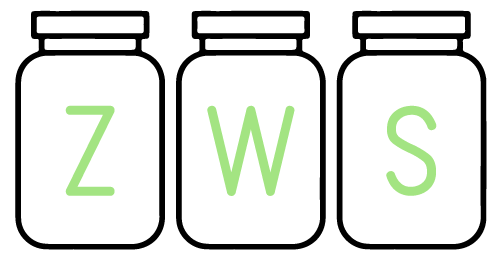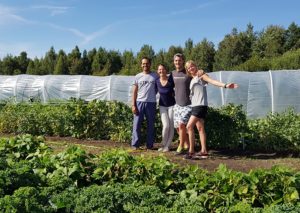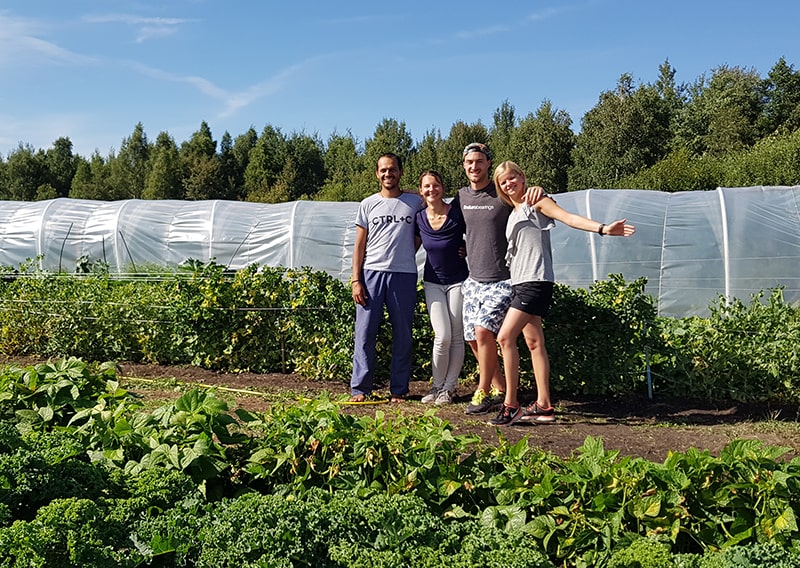
Receiving a veggie box from an eco-farm at home has always been a dream for me. It’s super convenient because my grocery list gets smaller and I love to improvise meals depending on what’s in the box.
Last year, I tried that way of ordering farm products online but the veggies were packed in plastic packaging and they looked very similar to what I can buy in the supermarket. Were these veggies really grown locally? I was not sure.
Recently, I stumbled on the farm of Diego and Kristina called Heartmade.
That farm caught my eye not only because the veggie box looked fresh and delicious, but also because they were inviting anyone to visit their farm. The weekend after, I jumped on my bicycle with Gerome and we were on the way to visit their farm! This time, I will find out if the veggies from the box are really grown locally.
Spoiler alert: I was amazingly surprised by the warm welcome of this family farm. I even had the chance to have an interview with Diego who tells the story of the farm!
Travel to the farm
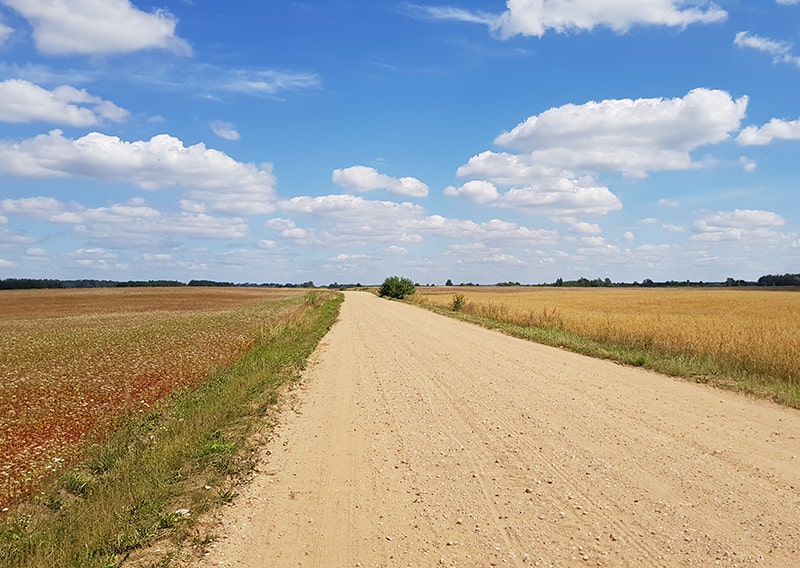
The farm is located 28km from Vilnius. We took the train until Lentvaris and than we cycled on one straight road to reach the farm. What an amazing countryside landscape! That was so much pleasure for the eyes. Though, it was a little bit hard for the legs because the path is graveled and bumpy! We did it with a city bike but it was not easy. Using a Mountain bike would be comfier.
Warm welcome
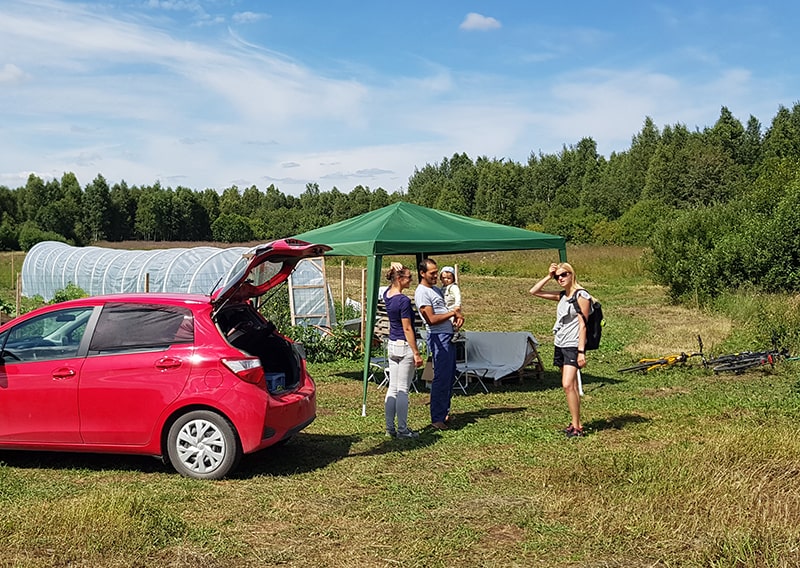
Diego, Kristina, and Feliksas welcomed us with a delicious lunch under the warm sun. Zucchini lasagna & home-made kombucha on the menu. Perfect to introduce each other!
Round of the eco-farm
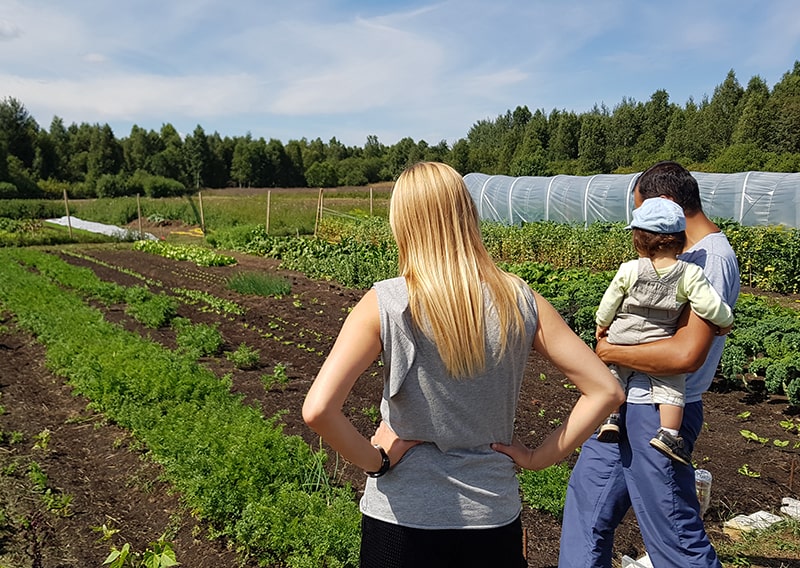
After sharing their fascinating story, we did a round of the farm. Everything is grown organically, at the pace of nature. Diego had something to tell about each veggie we were passing by: Lettuce, Kale, Tomatoes, Rainbow Cabbage, Carrots… Lots of stories about organic agriculture.
Hanging zucchini
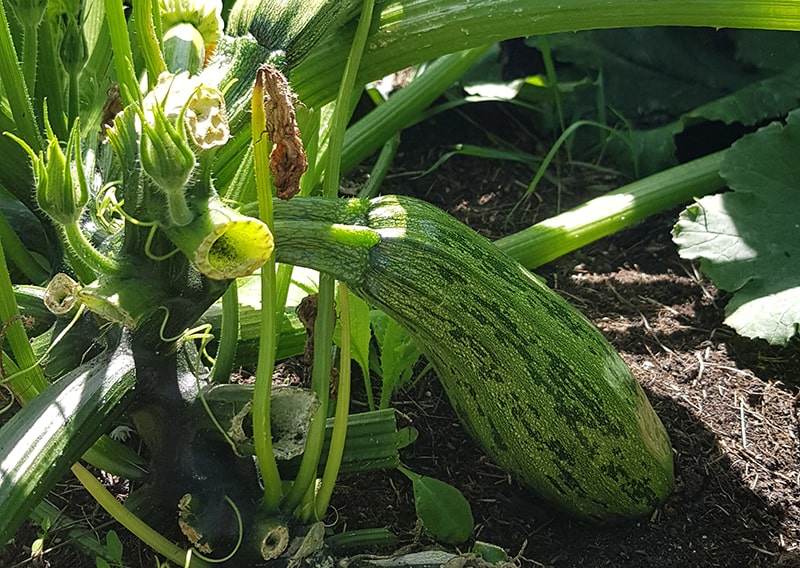
The colorful zucchini. It doesn’t know it will be eaten soon.
Here are some spring onions
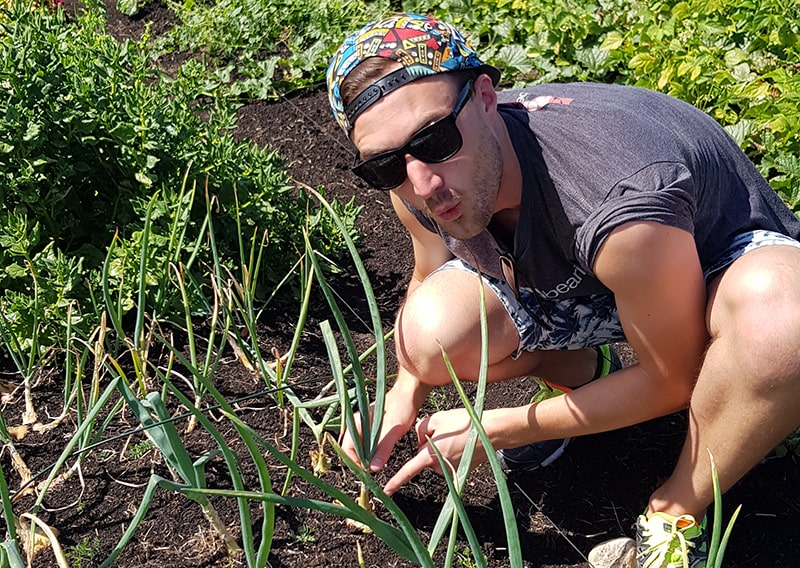
Gerome playing with the spring onions. They’re our favorite! We don’t spend a week without adding their freshness in our meals.
Step into the greenhouse
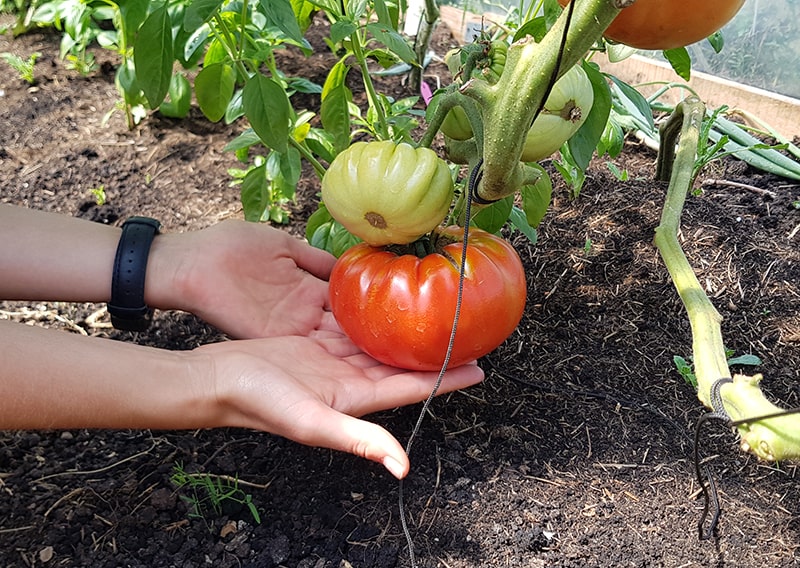
A juicy tomato from the greenhouse. Who wants a bite?
What about a crunchy kale?
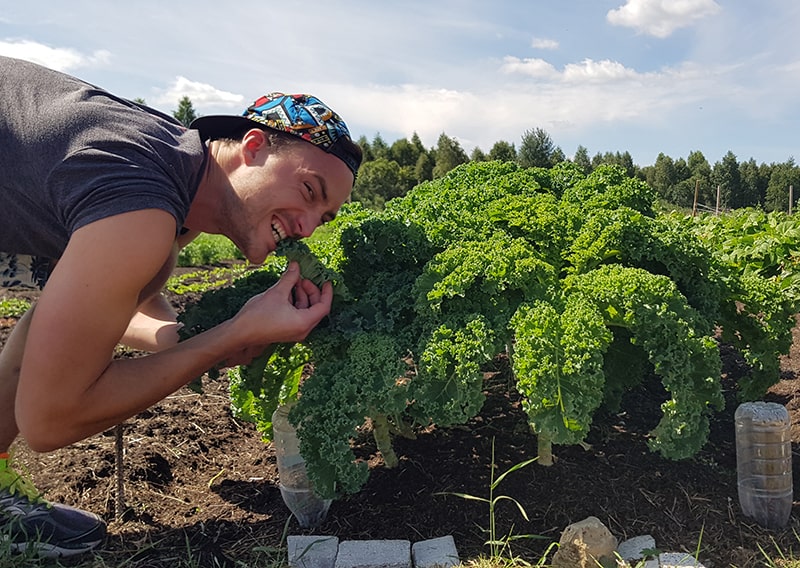
Gerome could not resist. That kale “tree” looked so crunchy!
It's time to harvest!
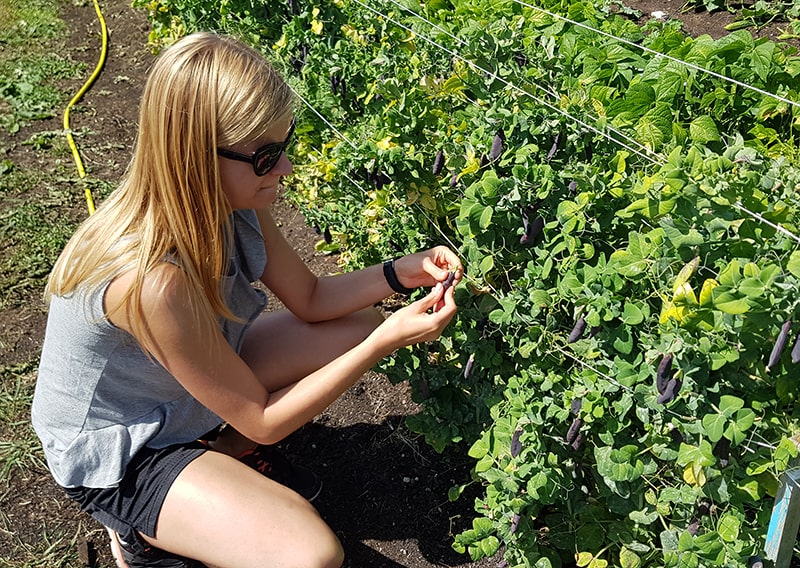
While Gerome was playing around with the organic veggies, Kristina called me to do some tasks. Let’s pick-up veggies for our sample box.
Our veggie box is ready
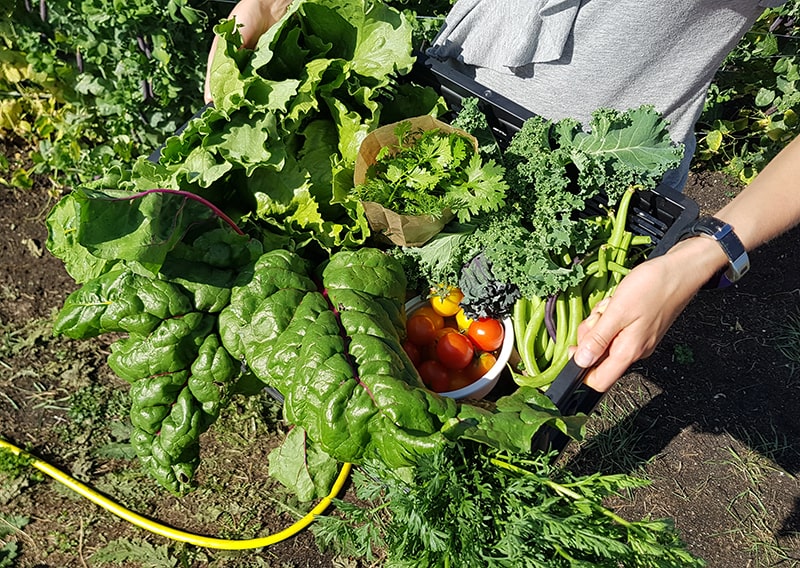
Tadaaa! After Kristina explained me how to pick up each plant, I finally got a full bucket of delicious veggies to bring back home
Refreshment in the lake
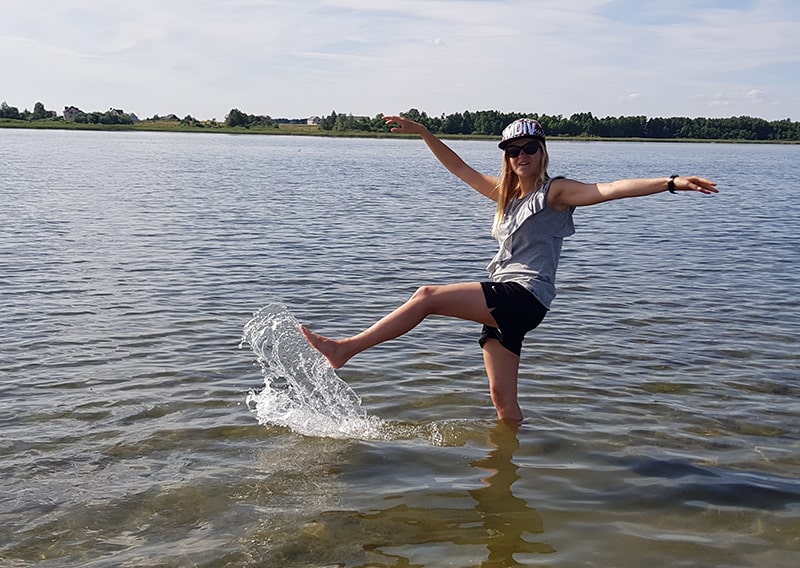
A few extra sharing & laugh and it’s time to go home. Before leaving, we had a swim in the lake nearby.
Coming back home
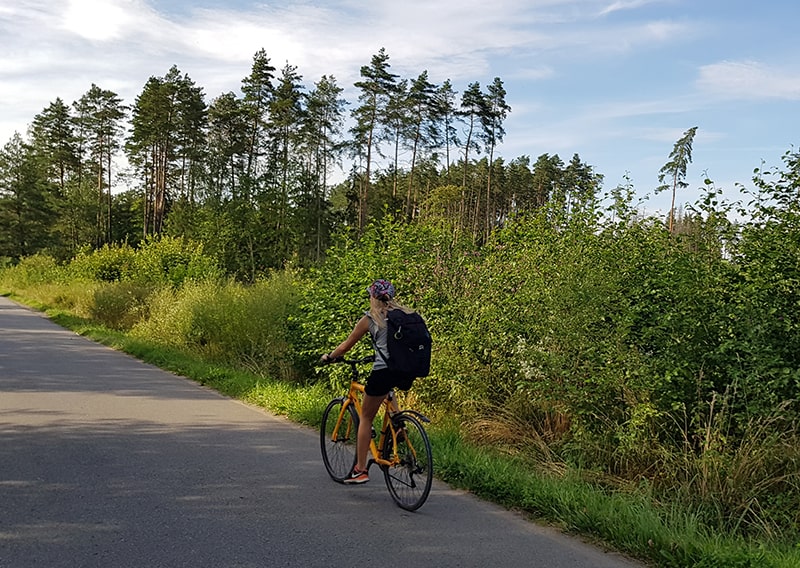
We still have to ride through the countryside and take the train to go back to Vilnius…
Last words
Visiting this local farm was a fantastic and enriching experience! The Heartmade family is very welcoming and always eager to share their story. We learned a lot about the way veggies are growing and we even picked them up for our own veg box delivery.
For the upcoming weeks, we’ll be part of the Sharing Program. Diego will deliver the veggies at our apartment every week.
Do you also want to visit the Heartmade farm, harvest veggies, and share an amazing human experience? Have a look at Heartmade Farm.
Interview with Diego
As promised, here‘s the interview with Diego:
Let‘s start with a little warm-up, to get to know you better. Answer these questions spontaneously:
- Morning or Evening? Morning
- Carrots or Beetroots? Beetroots
- Organic or Local? Local
- Šaltibarščiai or Cepelinai? Šaltibarščiai
- Gerai or Puiki? Puiki
- Dille or Coriander? Coriander
Now Diego, what is your story? How did you end up opening a farm in Lithuania?
Actually, it‘s a very long story, but I‘ll make it short. We were living in Brussels a while ago and we had the idea to start a Farm. We were not sure how, when, or where. So, we started to learn more about the sharing economy and the shared farm concept, and then we thought, let‘s do it. Let‘s grow veggies for us but also for other people. Knowing that we would share the farm, the benefits of farming, and having a farm. My wife is Lithuanian so her country was a closer option from Brussels than Peru.
What are your backgrounds or your previous activities?
For my part, I studied Animal Science Engineering. I worked mainly in Organic Agriculture and Innovation in Agriculture & food. One last project was for an NGO to develop innovative projects with young people. Regarding Kristina, she’s a lawyer and worked for governmental institutions. Now she‘s on her maternity leave and helps for our farm project.
What were your motivations to start an eco-farm?
It‘s difficult to pick just one. But the main one is my feeling and my connection with nature. For example, I love to work bare feet and touch the soil. I also love to meet people and introduce the farm in such an environment. I‘m also a father and seeing my baby growing on the farm is fantastic!
How did you educate yourself about growing veggies? How long did it take?
Obviously, I learned a lot during my Animal Science engineering studies. When I was living in Peru, I was a volunteer in an organic Farm to put that in practice. And before coming to Lithuania, we were living in an apartment in Brussels where we had a small terrace to grow veggies. We were also participating in community gardens.
I‘m also following personalities in the world of farming. One is Elliot Coleman and he wrote the book „The New Organic Grower“. Another one is Jean-Martin Fortier who wrote „The market gardener“.
Altogether, it‘s been about 3 years that we‘re really digging into it. But we are still learning every day.
Are you working full time on the farm?
Kristina and I are working full time on the farm, but as we have to take care of Feliksas also, I’d say that we both are part-time farmers. There is a lot of work at the farm but also in the city where we deliver the veggie box and build the community around the farm. We also take care of the communication such as the newsletter where we share the news and some recipes.
Can you already make a living from your farm activity?
This is our first year as farmers, and our goal is to learn as much as possible. We have invested some money, but above all, a lot of our time. Currently, we have revenues from 15 families and we expect to get 25 by the end of the year. Our goal for 2021 is to have 40 members in our Farm Share Program. We want to grow better rather than bigger.
Is it possible to grow veggies during the winter?
Yes, it‘s possible. But our plans for this winter are still unclear. We don‘t know if the greenhouse will survive. We plan to do a lot of experiments and I think that we‘ll be able to keep our activity with better infrastructure and more knowledge by next year.
Why should people buy veggies from you and not from the supermarkets?
First of all, the human connection. They can visit the farm and they‘ll learn a lot by buying food from us. Also, they‘ll see that the food is grown naturally and that it‘s good for their health.
For people who don‘t have time to visit us, they can order the sample box and check out my knowledge on Facebook, Instagram, and the Newsletter.
Are you trying to reduce the waste of your business?
Regarding food, we invest a lot of time and effort to produce adequate quantity to avoid waste. Sometimes, plants get diseases and we throw them away in the compost.
Also, our veggie box is delivered in a big reusable/foldable plastic box. When it‘s necessary, veggies are protected in small plastic bowls. At the next order, the purpose is to give us back the box and the plastic bowls. So, no trash is produced!
Here‘s another one. If one of our members cannot receive his veggie box because he‘s on holiday, we offer him to donate the box to people who are in need like an elderly house.
Is eco-farming a solution to solve climate change?
For sure, it‘s one solution amongst others. Create an eco-farm is one of the biggest because it‘s connecting people to raise awareness about climate change, food insecurity. So, yes, I think small farms can have a positive impact.
How to start receiving your veggie box?
If you don‘t know us, we recommend people to start with our sample box. Once you‘re convinced by our veggies, you can subscribe to a plan of 6 or 18 weeks which will be cheaper than the sample box. You can take your first order here.
Also, anyone is welcome to visit the farm. Especially on Sunday when it’s our free day. You can write to us on social media.
Thanks a lot for your time Diego. See you at our next veggie delivery!
